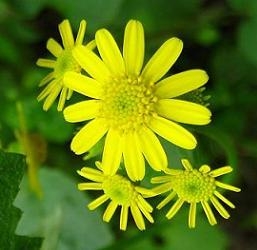
A Meditation on Spring
Zhang Xiaofeng translated by Rumin Wang
There must have been such a scene for spring:
Snow, on the top of a mountain with hidden green, could not keep its shape anymore, smiled with chuckle, turning its cold face into flowery one; it sang gurgling from clouds to foothills, from foothills to artless villages, into twig fences, yellow feet of a little duck, mud - as soft as a new quilt.
So effeminate, sensitive, but that illegible and boundless. An innocent thunder could offend all the clouds to tear; a long cuckoo cries could irritate all the cuckoo flowers in the city to bloom. With a gust of wind, willows chant out flying catkins - white and light, which no one could understand; every flake of flying catkin was a semicolon of a willow. Sure, spring is so unreasonable, illogical, but still good enough to set us at ease.
Spring must have such a scene:
In a pond, an aged stem are defended by dried-up branches with dim leaves and withered flowers; a roof beam in the north, attacked and disturbed by wind and snow, maternally holds a small empty swallow nest. But one day, peach blossoms suddenly occupy all the villages and river banks, willows control all the imperial moats and civil rivers. Like an elite division with a bright flag, spring beauties up as long prayerful wishes.
About the name "spring", there must have been such a story:
Before Book of Songs and Book of History, even before word formation, a lamb suddenly felt juicy when cropping grasses; a kid suddenly felt kite's soaring when flying it; a leg, pained from wind stroking all days long, suddenly felt stretched; thousands of snow-white hands suddenly felt spirituality of water when washing by brook, pond and river... All of them started running to tell each other surprisingly, when they decided to name the season by putting their mouths into a shape as if they were whistling and with a pleasant whispery voice, as "Spring".
Birds start to measure the sky, some for blueness, some for transparency, others for height and depth with their wings. But all the birds aren't good mathematicians. They count and check with gibberish, but have no courage to announce their statistics.
Butterflies are appointed to count flowers, bees are assigned to compile flower buds, wind is asked to dote upon trees; and wind itself, is to be memorized and inquired by the old windbells in the front of cottages.
Spring must have been this, or is till this somewhere. Through the black forest with chimneys, I'd like to visit the spring which was wandering in far back ages.
(原文)春之懷古--張曉風(fēng)
春天必然曾經(jīng)是這樣。從綠意內(nèi)斂的山頭,一把雪再也撐不住了。噗嗤一聲,將冷臉笑成花面。一首澌澌然的歌便從云端唱到山麓,從山麓唱到低低的荒村,唱入籬落,唱入一只小鴨的黃蹼,唱入軟溶溶的春泥,軟如一床新翻的棉被的春泥。
那樣嬌,那樣敏感,卻又那樣渾沌無涯。一聲雷,可以無端地惹哭滿天的云,一陣杜鵑啼,可以斗急了一城杜鵑花。一陣風(fēng)起,每一棵柳都吟出一則則白茫茫,虛飄飄,說也說不清,聽也聽不清的飛絮,每一絲飛絮都是一株柳的分號。反正,春天就是這樣不講理,不邏輯,而仍可以好得讓人心平氣和的。
春天必然會是這樣:滿塘葉黯花殘的枯梗抵死枯守一截老棍,北地里千宅萬戶的屋梁受盡風(fēng)侵雪擾猶自溫柔地抱一團小小的空虛的燕巢。然后,突然有一天,桃花把所有的山村水廓都攻陷了。柳樹把皇室的御溝和民間的江頭都控制了。春天有如旌旗鮮明的王師,因長期虔誠的企盼祝禱而美麗起來。
關(guān)于春天的名字,必然曾經(jīng)有這樣的一段故事:在《詩經(jīng)》之前,在《尚書》之前,在倉頡造字之前,一只小羊在嚙草時猛然感到的多汁,一個小孩在放風(fēng)箏時猛然感到的飛騰,一只患風(fēng)痛的腿在猛然間感到的舒活,千千萬萬雙素手,在溪畔,在塘畔,在江畔浣紗的手所猛然感到的水的血脈……當(dāng)他們驚訝地奔走互告的時候,他們決定將嘴噘成吹口哨的形狀,用一種愉快的耳語的聲量來為這季節(jié)命名:“春”。
鳥又可以丈量天空了。有的負責(zé)丈量天的藍度,有的負責(zé)丈量天的透明度,有的負責(zé)用那只翼丈量天的高度和深度。而所有的鳥全不是好的數(shù)學(xué)家,他們嘰嘰喳喳地算了又算,核了又核,終于還是不敢宣布統(tǒng)計數(shù)字。
至于所有的花,已交給蝴蝶去點數(shù)。所有的蕊,交給蜜蜂去編冊。所有的樹交給風(fēng)去縱寵。而風(fēng),交給檐前的老風(fēng)鈴去一一記憶,一一垂詢。
春天必然曾經(jīng)這樣,或者,在什么地方,它仍然是這樣的吧?穿越煙囪與煙囪的黑森林,我想走訪那躑躅在湮遠年代的春天。











